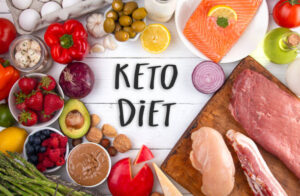Depression Supplements: Can Vitamins Help Manage Depression Symptoms?

Depression is a complex mental health condition that affects millions of Americans. While therapy and medication are common treatments, nutritional deficiencies may also play a role in mood regulation. Could certain vitamins, minerals, and supplements help manage depression symptoms?
In this article, we’ll explore the science behind depression-fighting supplements, which nutrients show promise, and how they might support mental wellness alongside traditional treatments.
Can Supplements Really Help with Depression?
Research suggests that nutritional deficiencies may contribute to mood disorders. While supplements aren’t a cure, they may help:
✔ Support brain function
✔ Balance neurotransmitters (like serotonin & dopamine)
✔ Reduce inflammation (linked to depression)
✔ Improve energy levels
However, they should never replace professional treatment. Always consult a doctor before starting any new supplement.
Top 6 Supplements for Depression Support: 1. Omega-3 Fatty Acids
How it helps: Omega-3s (EPA & DHA) are crucial for brain health, reducing inflammation, and supporting neurotransmitter function.
Best sources: Fatty fish (salmon, sardines), algae oil, flaxseeds
Studies show: High EPA doses may improve mood in some individuals (Journal of Clinical Psychiatry).
2. Vitamin D (The “Sunshine Vitamin”)
How it helps: Low Vitamin D levels are linked to seasonal depression (SAD) and overall mood regulation.
Best sources: Sunlight, fortified dairy, fatty fish, supplements
Research note: A meta-analysis in Nutrients found Vitamin D supplementation helped reduce depressive symptoms in deficient individuals.
3. B Vitamins (Especially B12 & Folate)
How they help: B vitamins aid in producing serotonin and dopamine. Deficiencies (especially B12 & folate) are linked to depression.
Best sources: Meat, eggs, leafy greens, fortified cereals
Key fact: Some people with a MTHFR gene mutation may need methylated folate for better absorption.
4. Magnesium : How it helps: Magnesium calms the nervous system and may reduce anxiety and depression. Many Americans are deficient.
Best sources: Dark leafy greens, nuts, seeds, supplements (glycinate or citrate)
Study insight: A 2017 PLoS One study found magnesium supplementation improved mild-to-moderate depression.
5. S-Adenosylmethionine (SAMe)
How it helps: SAMe is a natural compound that boosts serotonin and dopamine levels.
Research-backed: Some studies suggest it may be as effective as certain antidepressants (Harvard Health).
Note: Can interact with medications—consult a doctor first.
6. Probiotics (Gut-Brain Connection)
How they help: A healthy gut microbiome influences mood via the gut-brain axis. Probiotics may reduce inflammation and improve serotonin production.
Best sources: Yogurt, kefir, sauerkraut, high-quality probiotic supplements
Interesting fact: 90% of serotonin is made in the gut!
Do Herbal Supplements Work for Depression?
Some herbs show promising but mixed results:
St. John’s Wort: May help mild depression (but interacts with many medications).
Ashwagandha: An adaptogen that may reduce stress and anxiety.
Rhodiola Rosea: Could help with fatigue and mood balance.
⚠ Caution: Herbal supplements can interact with antidepressants—always check with a healthcare provider.
Key Considerations Before Taking Supplements
Get tested for deficiencies (Vitamin D, B12, iron, etc.).
Quality matters—choose third-party tested brands (NSF, USP).
Combination approach works best—supplements should complement therapy, medication, and lifestyle changes.
Watch for interactions (especially if on SSRIs or MAOIs).
Final Thoughts: Should You Try Supplements for Depression?
While vitamins and supplements may help manage symptoms, they’re not a standalone solution. The best approach combines:
✅ Professional mental health treatment
✅ Balanced nutrition (whole foods first!)
✅ Regular exercise & sleep
✅ Targeted supplements (if deficient)
If you suspect nutritional gaps are affecting your mood, talk to a doctor or dietitian about personalized supplement options.

krista Bendova
krista Bendova is a passionate health and wellness writer who shares her expertise to inspire readers to prioritize self-care. With a background in holistic nutrition and alternative therapies, she provides practical advice, mindful living tips, and natural remedies. Isabella’s genuine interest in well-being extends beyond her writing, as she enjoys practicing yoga, exploring organic farming, and experimenting with herbal remedies in her own garden.








